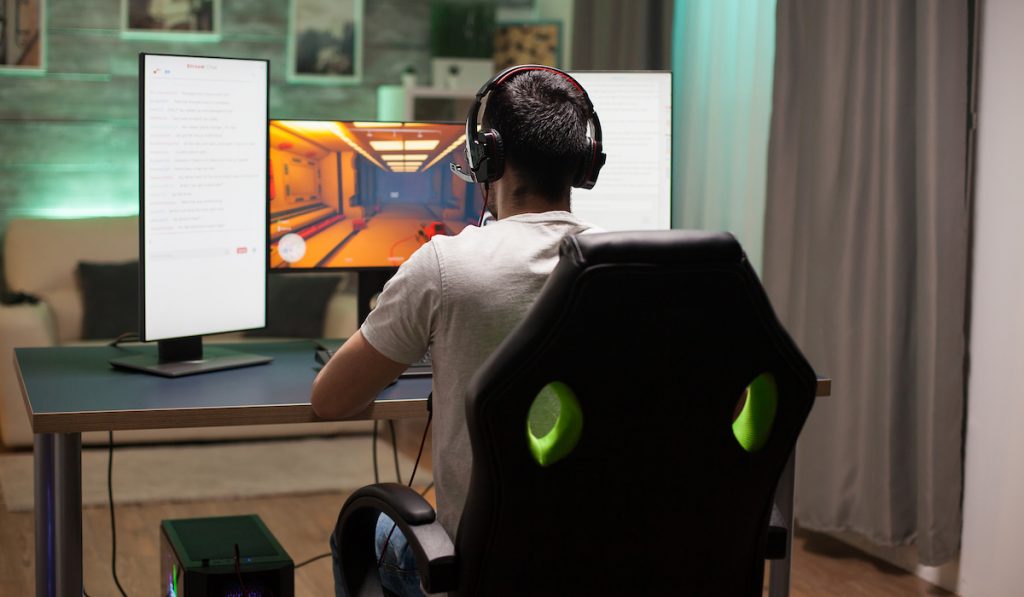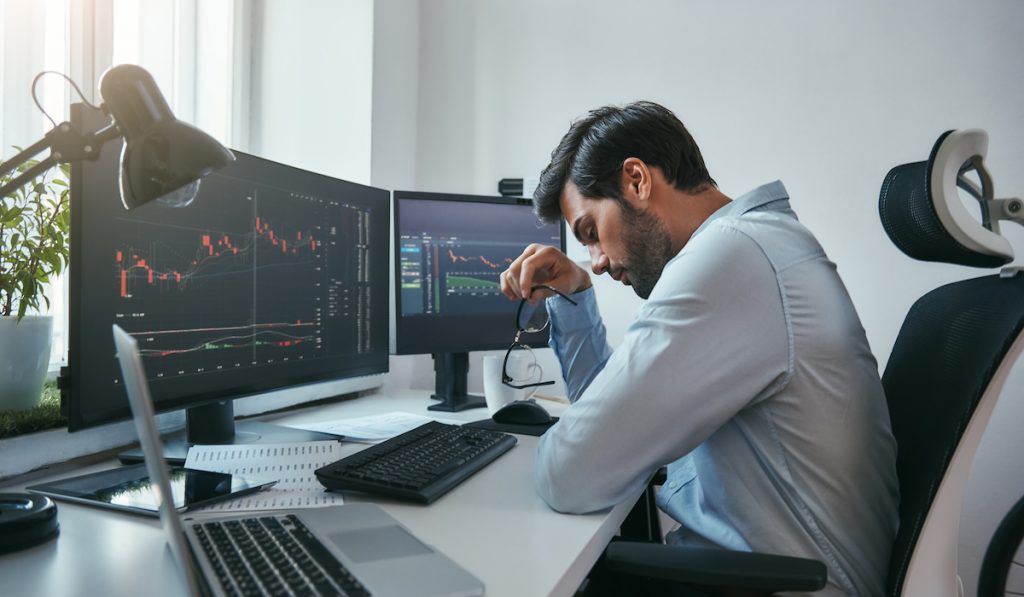Being a software engineer can take its toll on your health, and unhealthiness is not something you can debug. The long hours with computers, the sleeplessness nights, and the lack of physical activity will be of no good to your body in the long run.
We cannot stress how much the world needs software engineers. But to be a software engineer, you have to stay healthy. So, we come to you with 11 healthy lifestyle tips you should adopt as a software engineer.
Table of Contents
1. Get Enough Sleep

One unhealthy habit that is common to many software engineers is bad sleep hygiene. This is particularly common with new and young software engineers.
As a new software engineer, you are very eager to rise as fast as you can. This enthusiasm, albeit great, might be the reason you stay awake all night.
When you hit a snag while doing your job, it might take hours before you can rectify it. Sometimes, the hours will stretch into your bedtime, but rather than get some sleep, you keep going.
Fine, you might get some extra work done if you stay awake. But you certainly won’t be at 100% the following day.
The body, especially your brain, needs sleep to recharge. If not relaxed, you will become physically and mentally tired.
If you are physically tired, you will become too weak to work. If you are mentally tired, your ability to think drops rapidly. In fewer words, you may become unproductive if you are not getting enough sleep.
You may even become seriously ill from not sleeping well. When you are sick, productivity will be the least of your worries.
A night of healthy sleep should last at least 6 – 8 hours. You should also sleep at around the same time every night, and sleep in a comfortable room.
2. Cut Your Caffeine Intake

As a software engineer, your work can be very draining sometimes. You could get very tired and might resort to taking caffeinated drinks to boost yourself.
Now, when you take caffeine at normal levels, there’s usually no problem. But you might become dependent if you do this regularly.
It could get so bad that nothing else will work to boost you except caffeine, and when you cannot get caffeine, you will be unable to work.
But that’s not all caffeine can do to you. Taking caffeine can keep you awake, especially if you take it close to your bedtime. Like we mentioned earlier, not getting enough is unhealthy.
3. Leave Time Out to Exercise

Not being physically active can do a lot of damage to the body. It could make the body physically unfit and predispose you to certain chronic diseases.
By sitting in front of a computer all day, you are being physically inactive. Over time, this inactivity will accumulate and affect your health in many ways.
For one, the least intense activities might start leaving you breathless. You may suffer from overuse syndrome, and you might also gain unhealthy weight. Gaining an unhealthy weight will leave you at risk of having heart diseases and diabetes.
Instead of spending all your time in front of the screen, you should leave time out to exercise. You could register at a gym around your house or workplace.
You could also schedule a specific time at least twice a week to get yourself involved in a fitness routine. It doesn’t have to be something to tone your muscles or make your bulkier, just something to ensure your heart, lungs, and muscles are in the right shape.
4. Adopt a Healthy Sitting Position

As a software engineer, you will definitely be sitting for long periods. The best thing you can do for yourself, especially your lower back, is to sit correctly. If you are not sitting upright, your lower back will suffer, and that’s just one way it can affect your health.
The best sitting position is upright, and an ergonomic chair coupled with an ergonomic desk will come in handy here. You can also choose to get a standing desk.
You can alternate between using your sitting desk and your standing desk. This way, you save your back the stress from sitting for long periods and maintain a good posture.
5. Reduce Screen Time

Exposing your eyes to a computer screen all day long can affect them. There is a group of symptoms called computer vision syndrome. These symptoms occur when you stay in front of a screen for too long.
Some of these symptoms include dry eyes, neck pain, blurry vision, and headaches. Apart from these, prolonged exposure to screens could also affect your sleep pattern. Blue light from screens is thought to affect the production of melanin – the sleep hormone – in the body.
So, as much as you can, take breaks from staring at your screen. You may take a break from screens every 2 hours. You could also gaze at distant objects at intervals while working. Since blue light can affect your sleep, avoid using your devices at least 2 hours before sleep.
6. Take Breaks

Regardless of how strong you are, you are still human. You cannot work continuously without burning out. You need to take breaks.
Taking breaks can help you recover from physical fatigue. Also, if you have a creative block while working, taking a break can help.
You can take a walk around your home/office. You may also have a casual conversation with someone around. Doing any of these can help you relax and spark an idea that will help with your work.
7. Do Not Eat While You Work

Eating while you work is poor table etiquette. Besides this, eating while you work deprives your body of the break it needs.
Earlier, we said you should reduce screen time. Well, eating while you work is not going to help you reduce screen time. You should take your lunch break away from a screen, take that time to refresh your mind and body.
8. Adopt a Healthy Diet

The long work hours may deprive you of the time to get a decent meal. Hence, you might be tempted to rely on unhealthy foods to get by.
While unhealthy meals might give you the quick sugar boost you need to survive, it could do your body so much harm later on.
You may not totally rid yourself of fast foods, but be cautious. Try to limit the intake of such foods and balance them out with healthy meals.
9. Engage in Some Physical Interaction

Spending a lot of time with digital devices can affect how you interact with people physically. For one, if you get too used to only interacting from behind a computer/phone, you may start being anxious in social settings.
To avoid this, try to have physical discussions during your breaks. You could also take a walk around and enjoy nature, enjoy everything non-virtual.
10. Do Not Rush Your Meals

With all the work you have on hand, you might be tempted to rush your meals and get back to work immediately. Our advice is you shouldn’t.
Rushing your meals deprive you of the savor. More importantly, rushing your meals may affect your digestion and may cause you to eat more than you should.
11. Drink Lots of Water

One of the best things anyone can do for their body is to drink water. You should drink half a gallon to 3/4 gallons of water minimum each day.
This helps your body detoxify itself from the unhealthy foods and caffeine you might have consumed. Water is also the best alternative to carbonated drinks and sugary beverages.
Plus, if you take lots of water, you get to have more bathroom breaks. We think any type of break, including a bathroom break, is good for you.
Resources
- https://code.tutsplus.com/articles/seven-tips-for-the-healthy-programmer–cms-25043
- https://medium.com/taking-flight-with-mailjet/10-tips-to-stay-healthy-as-a-developer-3b17b77e16a6
- https://www.sleepfoundation.org/articles/sleep-hygiene
- https://www.sleep.org/articles/circadian-rhythm-body-clock/
- https://www.mayoclinic.org/healthy-lifestyle/nutrition-and-healthy-eating/in-depth/water/art-20044256
